Types of Numerology
Numerology, as a spiritual and philosophical discipline, finds its roots in ancient civilizations where mathematics was revered not just for its logical precision but for its mystical qualities as well. Thousands of years ago, different cultures interpreted the relationship between numbers and life in unique ways, giving rise to various systems of numerology. These interpretations evolved over time, influenced by the beliefs, traditions, and environments of the societies in which they developed.
Although numerology has not been widely recognized as a scientific field, its impact on human thought and culture has been profound. The idea that numbers could reveal hidden truths about human nature, destiny, or the universe captured the imagination of many. In fact, the symbolic power of numbers intrigued not only spiritual seekers but also many mathematicians and scholars of the ancient world, leading them to explore these systems in depth.
The earliest traces of numerological thought can be found in ancient civilizations such as the Indian, Chinese, Japanese, Egyptian, and Babylonian. While the knowledge available at the time may not have been exhaustive, it was sufficient to lay the groundwork for future studies. Numbers were believed to carry vibrations and meanings that could help individuals uncover answers to life’s questions, find personal direction, or understand events unfolding around them. This mystical approach gave rise to numerology as a tool for self-discovery and guidance.
Numerology systems developed in various parts of the world, each shaped by its cultural context and philosophical underpinnings. Over time, five major types of numerology emerged, each with distinct methodologies and interpretations:
- Chaldean Numerology
- Chinese Numerology
- Kabbalah Numerology
- Vedic Numerology (Indian Numerology)
- Western (Pythagorean) Numerology
Each numerological tradition interprets numbers in its own way, offering unique insights into an individual’s character, destiny, and life circumstances. Despite their differences, all systems share a common belief: that numbers are more than mere quantities - they are symbolic keys to understanding the universe and the self.
Chaldean Numerology
Chaldean Numerology, often referred to as Mystical Numerology, is one of the oldest and most esoteric systems of numerology. Though it is less commonly used today compared to other systems like the Pythagorean method, it is highly regarded for its accuracy, depth, and spiritual precision in revealing hidden aspects of a person’s character and destiny.
This numerology system originated in ancient Babylonia, around the 10th century BCE, and is named after the Chaldeans, a semi-nomadic tribe that inhabited the region. The Chaldeans were known for their advanced understanding of astronomy, astrology, and mystical sciences, and their influence significantly shaped early occult traditions in the ancient world.
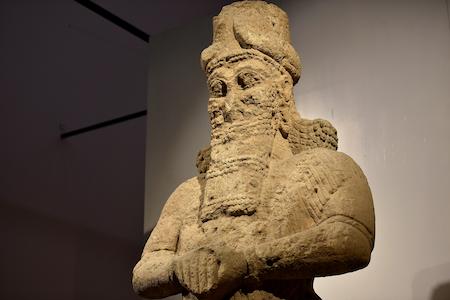
(source: commons.wikimedia.org)
Unlike other numerology systems that assign numerical values to letters in a straightforward alphabetical sequence, Chaldean Numerology is based on the vibrational frequencies of sounds rather than the order of the alphabet. Each letter is assigned a number from 1 to 8 (the number 9 is considered sacred and is not typically assigned to letters, except in special cases), reflecting the unique energy or vibration that each sound emits. These vibrations are believed to carry powerful meanings that influence both personality traits and life circumstances.
One of the core principles of Chaldean Numerology is the distinction between outer and inner numbers:
- Single-digit numbers (from 1 to 8) are said to represent external influences - the way an individual appears to the world and how external forces shape their experiences.
- Compound or double-digit numbers reveal inner forces - the deeper, often hidden aspects of a person's personality, desires, and subconscious drives.
This dual-layered interpretation allows Chaldean Numerology to offer a more nuanced and spiritually insightful analysis compared to more linear systems. It not only decodes the energies within a person’s name and birth date but also considers the broader cosmic vibrations influencing their life journey.
Despite its relative obscurity today, Chaldean Numerology continues to attract those who seek a more mystical and energetically precise approach to understanding the self. Its roots in ancient wisdom and its focus on vibrational resonance make it a powerful tool for introspection, spiritual growth, and intuitive decision-making.
Chinese Numerology
Chinese Numerology is an ancient, culturally rich system that intertwines numerical symbolism with elements of traditional Chinese philosophy, including Yin and Yang, the Five Elements (Wu Xing), and the I Ching (Book of Changes). Unlike Western numerology systems that rely on mathematical calculations or alphabetic value assignments, Chinese Numerology is deeply influenced by the phonetic sounds of numbers when spoken in Chinese, particularly in Mandarin and Cantonese. This unique feature has given rise to strong cultural associations - numbers are viewed as either lucky or unlucky based on how closely their pronunciation resembles words for positive or negative concepts.
For instance, the number 8 (bā) is considered extremely auspicious because it sounds like "prosper" (fā), making it highly desirable in phone numbers, license plates, and addresses. Conversely, 4 (sì) is often avoided, as it sounds like "death" (sǐ). Other numbers carry various connotations: 1 represents beginnings, 2 suggests harmony, 3 is linked to life and growth, while 9 symbolizes longevity and eternity. These associations shape everything from personal decisions to business practices and real estate in Chinese communities around the world.
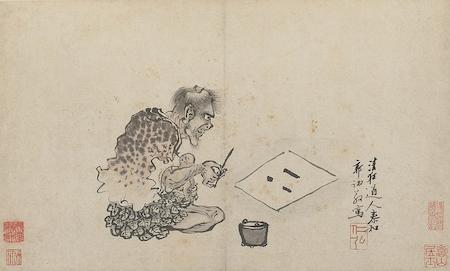
(source: commons.wikimedia.org)
One of the foundational systems within Chinese Numerology is the Lo Shu Grid, a 3x3 magic square that dates back thousands of years. According to legend, this grid was revealed on the shell of a turtle emerging from the Luo River. Each number in the grid - from 1 to 9 - is believed to represent a specific energy, element, and aspect of life. The Lo Shu Grid is especially influential in Feng Shui, where it is used to assess the energy flow of a space or an individual. When applied to a person, the grid is constructed using their birth date, and the presence or absence of certain numbers is interpreted to uncover personality traits, life challenges, and strengths.
Chinese Numerology has wide-ranging applications. It is used to gain insight into one’s character, destiny, and personal energy, and it often plays a role in choosing auspicious names, dates, and numbers. In Feng Shui, it informs the placement and orientation of homes, offices, and objects to promote health, wealth, and balance. It is also used to analyze compatibility in relationships, and to select lucky names for babies and businesses.
Unlike other numerology systems, Chinese Numerology does not rely on alphabet-to-number conversions. Instead, it integrates cultural values, cosmic principles, and the symbolic power of sound, making it a uniquely intuitive and spiritually aligned system. Its deep connection to traditional Chinese metaphysics sets it apart from systems like Western (Pythagorean), Chaldean, or Vedic Numerology, which emphasize arithmetic or astrological factors over linguistic resonance. As such, Chinese Numerology remains a vital part of Chinese spiritual and cultural life, used to navigate both everyday decisions and major life milestones.
Kabbalah Numerology
Kabbalah Numerology is a deeply mystical and spiritually profound system of numerology, rooted in the ancient Hebrew mystical tradition known as the Kabbalah. Emerging from the esoteric teachings of Jewish mysticism, this system places a strong emphasis on the spiritual journey of the soul, the power of language, and the divine energy embedded within letters and numbers.
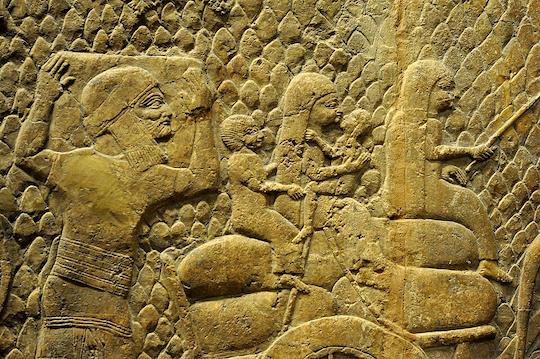
(source: commons.wikimedia.org)
Unlike other numerology systems that often analyze both names and birth dates, Kabbalah Numerology primarily focuses on the vibrational energy of names, particularly how the letters of a name interact with universal energies. Each letter of the Hebrew alphabet is believed to carry not only a numerical value but also a spiritual significance, reflecting cosmic truths and divine attributes. When adapted for use with the Latin alphabet (A–Z), each letter is similarly assigned a number based on a system that mirrors these ancient vibrational principles.
This system is unique in that it originally involved 22 vibrations, corresponding to the 22 letters of the Hebrew alphabet. These vibrations are seen as channels of spiritual energy, and their arrangement in a person's name can reveal powerful insights about one's soul purpose, inner strengths, karmic lessons, and spiritual path.
Kabbalah Numerology is especially valued for its ability to:
Illuminate the inner self by revealing the deeper qualities and spiritual attributes a person possesses.
Encourage personal growth by helping individuals recognize their strengths and confront their limitations.
Support self-acceptance and transformation, guiding people to embrace their true nature while also working to refine their character and align more closely with their higher self.
One of the central ideas in Kabbalistic thought is that creation itself was formed through the divine utterance of letters and numbers - making them sacred tools for understanding both the universe and the soul. As such, Kabbalah Numerology is not merely a predictive method, but a spiritual map that guides individuals toward greater self-awareness, enlightenment, and oneness with the divine.
Because of its rich spiritual heritage and deep metaphysical insight, Kabbalah Numerology remains one of the most popular and respected forms of numerological study today - especially among those seeking a more mystical and soul-centered approach to personal transformation.
Vedic Numerology
Vedic Numerology, also known as Indian Numerology, is one of the most ancient and spiritually rooted systems of numerology in the world. Deeply intertwined with the broader framework of Vedic astrology (Jyotish Shastra), this system originated in India thousands of years ago and continues to play a vital role in the traditional understanding of human life, destiny, and cosmic influence.
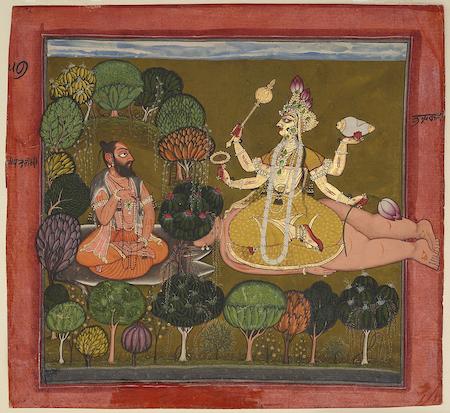
(source: commons.wikimedia.org)
At its core, Vedic Numerology is based on the belief that numbers are more than symbols - they are living energies that influence every aspect of a person’s life. It primarily uses the numbers 1 through 9, each of which is associated with a specific planet in the Vedic astrological system and carries distinct vibrations, qualities, and psychological traits. These planetary influences form the foundation for interpreting personality, behavior, relationships, and life events.
One of the unique aspects of Vedic Numerology is its triadic approach, which emphasizes three key numbers in an individual's chart:
-
Psychic Number (also called the Birth Number):
This number is derived from the day of birth (e.g., if someone is born on the 5th, their psychic number is 5). It reflects one’s inner self, personality, preferences, and how they perceive and express themselves.
-
Destiny Number (also called the Life Path Number):
Calculated by adding the full date of birth (day, month, and year) and reducing it to a single digit, this number represents one’s life purpose, karmic path, and long-term goals. It shows what an individual is destined to achieve in this lifetime.
-
Name Number:
This number is calculated based on the letters in a person's full name, using specific numerical values assigned to each letter. The Name Number reveals how a person interacts with the external world, including social image, professional success, and how others perceive them.
Each of these numbers corresponds to one of the nine Vedic planets:
- Sun
- Moon
- Jupiter
- Rahu (North Node of the Moon)
- Mercury
- Venus
- Ketu (South Node of the Moon)
- Saturn
- Mars
The vibrational interaction between these three numbers helps individuals understand their innate tendencies, align with their life purpose, and make more informed decisions. Additionally, Vedic Numerology can offer guidance on timing (muhurta), compatibility in relationships, career choices, and even name alterations for improved fortune.
Although it is a numerological system, Vedic Numerology is often considered an integral subset of Indian astrology, sharing its emphasis on karma, reincarnation, and planetary influence. Its holistic approach makes it a powerful tool for self-discovery, spiritual growth, and forecasting future possibilities.
Western (Pythagorean) Numerology
Western Numerology, commonly referred to as Pythagorean Numerology, is one of the most widely practiced and recognized forms of numerology in the world today - especially in Western cultures. It is named after the ancient Greek philosopher and mathematician Pythagoras, who lived in the 6th century BCE and is considered the father of modern numerological thought.
Pythagoras and his followers believed that numbers are the essence of all things. To them, the universe was an orderly system governed by numerical relationships, and every number held specific vibrational qualities that could influence people, objects, and events. This philosophical approach laid the foundation for what would become Western Numerology - a system in which numbers are seen as symbols of deeper truths and tools for understanding the self and the world.
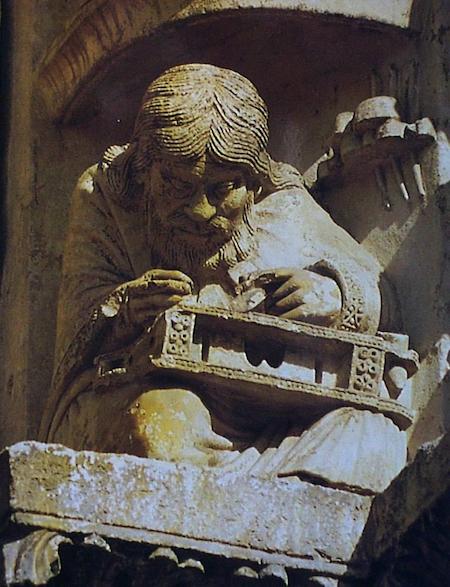
(source: commons.wikimedia.org)
In Western Numerology, the primary numbers used range from 1 to 9, each carrying its own energy, vibration, and meaning. These numbers are believed to influence various aspects of human personality and life path. Additionally, certain master numbers, such as 11, 22, and 33, are considered to have amplified spiritual significance and are interpreted separately due to their intensified energies.
The system assigns numerical values to the letters of the Latin alphabet in a simple, sequential manner:
- A = 1, B = 2, ..., I = 9
- Then the cycle repeats: J = 1, K = 2, ..., R = 9
- And continues: S = 1, T = 2, ..., Z = 8
By converting a person’s full name and birth date into numbers, practitioners can calculate several core numerological indicators, such as:
-
Life Path Number:
Derived from the full birth date, this number reveals the individual’s natural talents, challenges, and overall life purpose.
-
Expression (Destiny) Number:
Based on the full birth name, this number reflects a person’s natural abilities, potential, and how they present themselves to the world.
-
Soul Urge (Heart’s Desire) Number:
Calculated from the vowels in the name, it reveals inner motivations, desires, and the soul's deepest yearnings.
-
Personality Number:
Derived from the consonants in the name, it shows how a person is perceived by others.
-
Birthday Number:
Based solely on the day of birth, it adds another layer of personal insight.
What sets Western Numerology apart is its structured, analytical approach combined with a strong emphasis on self-discovery, life guidance, and personal development. It provides a practical framework to understand one's strengths, weaknesses, potential career paths, relationship compatibility, and even cycles of opportunity and challenge throughout life.
Because of its accessibility, versatility, and consistent results, Western Numerology has become the most popular and widely used numerological system in the modern world, especially in Europe, the Americas, and other Western-influenced regions. It continues to attract those who seek logical yet spiritual methods for unlocking personal truths and navigating life's journey.
Comparison of Numerology Systems
Each numerology system brings something unique to the table. If you're seeking spiritual insight and a deeper connection to the universe, you might gravitate towards Chaldean or Kabbalah Numerology. For a more structured and practical approach, Western Numerology could be the best fit. Vedic Numerology is ideal for those interested in a holistic view of their life path and astrological influences, while Chinese Numerology offers practical tools for decision-making and harmonizing energy in everyday life.
Ultimately, the best numerology system depends on your cultural background, spiritual beliefs, and personal goals.
| System | Key Focus | Origins | Method | Best Used For |
|---|---|---|---|---|
| Chaldean | Vibrational energy of numbers | Ancient Babylonia | Sound-based number assignments | Spiritual depth and intuitive insight |
| Chinese | Cultural symbolism and balance | Ancient China | Phonetic symbolism, Lo Shu Grid | Luck, Feng Shui, and practical applications |
| Kabbalah | Spiritual self-discovery through names | Hebrew mysticism | Focuses on the name, no birth date | Inner transformation and spiritual growth |
| Vedic | Planetary influences and karma | India (Vedas) | Numbers linked to planets | Life path and karmic insight (Astrology) |
| Western | Universal principles of harmony | Ancient Greece (Pythagoras) | Repeating numbers (1-9), Master Numbers | Personality analysis, career, and predictions |
Conclusion
While numerology systems differ in their approaches, they all aim to unlock the secrets of the universe through the language of numbers. Whether you choose Chaldean, Kabbalah, Vedic, Western, or Chinese numerology, each offers a valuable tool for self-understanding, growth, and empowerment. Embrace the system that resonates most with your personal journey, and let the numbers guide you toward your true path.